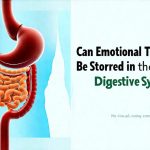Emotional crises – whether stemming from trauma, significant loss, major life transitions, or prolonged stress – fundamentally alter us. They disrupt not just our mental and emotional states but also profoundly impact our physiological systems. Often overlooked in discussions of recovery is the gut-brain connection and how deeply interwoven it is with emotional well-being. When we experience intense emotional distress, our bodies respond in complex ways, and this often manifests as changes in bowel habits. These aren’t merely side effects; they are signals from a body struggling to regain equilibrium. Understanding these stool changes isn’t about self-diagnosing or fearing illness, but rather recognizing them as part of the broader recovery process and potentially identifying when additional support might be needed.
The gut is often referred to as our “second brain” for good reason. It houses its own nervous system (the enteric nervous system), communicates extensively with the brain via the vagus nerve, and influences hormone production, immune function, and even neurotransmitter synthesis. During a crisis, the body shifts into survival mode, triggering the sympathetic nervous system – the ‘fight or flight’ response. This impacts digestive processes significantly, often leading to altered motility (the speed at which food moves through the digestive tract), changes in gut microbiome composition, and increased intestinal permeability (sometimes called “leaky gut”). These alterations can directly contribute to variations in stool consistency, frequency, and overall comfort. Recognizing these changes as a normal – though sometimes unpleasant – part of emotional recovery is crucial for self-compassion and appropriate care. You might find further insights into early signs from stool tests that warrant attention.
The Gut-Brain Connection & Emotional Dysregulation
The bidirectional relationship between the brain and gut plays a central role in how we experience and process emotions. This connection isn’t just theoretical; it’s supported by extensive research demonstrating that our mental state directly influences gut function, and vice versa. – Stress can slow down digestion, leading to constipation or bloating. – Anxiety often accelerates bowel movements, resulting in diarrhea or urgency. – Trauma can profoundly disrupt the gut microbiome, impacting nutrient absorption and immune regulation. The impact of emotional dysregulation on stool changes isn’t simply a matter of nerves; it’s about the complex interplay between neurotransmitters, hormones (like cortisol), and the microbial ecosystem within our gut. This system is incredibly sensitive, and even subtle shifts in emotional state can have noticeable effects on digestive processes. A basic stool analysis could help provide a baseline understanding of your gut health.
This sensitivity explains why individuals recovering from emotional crises often experience such diverse stool changes. Some might struggle with chronic constipation as their body remains stuck in a protective, slowed-down state. Others may oscillate between diarrhea and constipation, reflecting the fluctuating emotional landscape of recovery. Still others might experience increased gas, bloating, or abdominal pain, even without significant changes in stool consistency itself. These variations aren’t signs of failure; they are indicators that the nervous system is actively processing trauma or stress. It’s essential to remember that these changes are often temporary and will likely subside as emotional regulation improves. Understanding stool color and texture can also provide valuable clues during this process.
The gut microbiome—the trillions of bacteria, fungi, viruses, and other microorganisms residing in our digestive tract—is heavily influenced by emotional state. Chronic stress and trauma can negatively impact the diversity and balance of this microbial ecosystem, leading to dysbiosis (an imbalance in gut flora). Dysbiosis can further exacerbate digestive symptoms and impair immune function, creating a vicious cycle between emotional distress and physical discomfort. Restoring microbiome health through dietary changes, probiotic supplementation (under professional guidance), or stress-reduction techniques can be an integral part of the recovery process. Creating emotional safety is paramount during this restoration period.
Understanding Specific Stool Changes
Stool consistency provides valuable clues about what’s happening within the digestive system and how it’s responding to emotional stress. – Diarrhea: Often indicates increased gut motility, potentially triggered by anxiety, fear, or acute stress. It can also be a sign of malabsorption if nutrient uptake is compromised due to emotional distress. – Constipation: Suggests slowed down digestion, frequently associated with prolonged stress or depression. The body may prioritize energy conservation over digestive processes during times of overwhelming emotion. – Bloating and Gas: Can result from altered gut microbiome composition, increased intestinal permeability, or difficulty digesting food due to reduced enzyme production under stress.
It’s important to differentiate between stool changes directly related to emotional recovery and those potentially indicating an underlying medical condition. While temporary shifts in bowel habits are common during healing, persistent or severe symptoms – such as bloody stools, unexplained weight loss, or debilitating abdominal pain – warrant a consultation with a healthcare professional. Self-diagnosis can be misleading, and it’s always best to rule out other potential causes. Paying attention to the timing of stool changes can also offer insights. Do they consistently flare up during periods of high stress or emotional intensity? Are they linked to specific triggers or memories? This self-awareness can help individuals understand their body’s response to trauma and develop coping strategies. You may want to consider GI diagnostics if you have concerns about underlying conditions.
Addressing these stool changes isn’t necessarily about “fixing” them, but rather about supporting the body’s natural healing process. Gentle movement, adequate hydration, a balanced diet rich in fiber and probiotics (from food sources like yogurt or fermented vegetables), and stress-reduction techniques can all play a role in restoring digestive function. Mindfulness practices, such as deep breathing exercises or meditation, can help regulate the nervous system and reduce emotional reactivity, indirectly improving gut health. Remember that patience is key; recovery takes time, and fluctuations are normal. Looking at key takeaways from tracking data can also help you understand your progress over time.
The Role of Dietary Adjustments & Lifestyle Factors
Diet plays a significant role in modulating the gut-brain connection and supporting digestive health during emotional recovery. – Focus on Whole Foods: Prioritize nutrient-dense foods like fruits, vegetables, whole grains, lean proteins, and healthy fats. These provide essential vitamins, minerals, and fiber to nourish both body and mind. – Limit Processed Foods, Sugar & Caffeine: These can exacerbate inflammation and disrupt gut microbiome balance. – Stay Hydrated: Water is essential for digestive function and overall health.
Lifestyle factors beyond diet also profoundly impact stool changes and emotional well-being. – Regular Exercise: Physical activity helps regulate the nervous system, reduce stress hormones, and improve bowel motility. Even gentle activities like walking or yoga can be beneficial. – Prioritize Sleep: Adequate sleep is crucial for both physical and mental restoration. Aim for 7-9 hours of quality sleep per night. – Stress Management Techniques: Explore various methods to manage stress, such as meditation, mindfulness, deep breathing exercises, journaling, or spending time in nature.
Building a supportive environment is critical during emotional recovery. This includes establishing healthy boundaries, seeking connection with loved ones, and engaging in activities that bring joy and fulfillment. Remember that you are not alone, and reaching out for support – from friends, family, or a qualified therapist – is a sign of strength. Addressing the emotional root causes of stress and trauma is often necessary to fully restore digestive function. While dietary and lifestyle changes can provide symptom relief, they may not address the underlying issues driving the gut-brain connection imbalance. Seeking professional guidance from a therapist specializing in trauma-informed care or somatic experiencing can be invaluable for long-term healing.


















